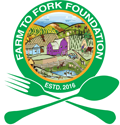Impacts of nitrogen on plant disease severity and plant defense mechanism
DOI:
https://doi.org/10.5455/faa.103334Keywords:
Nitrogen, disease severity, plant defense, physical defense, biochemical defense, molecular defenseAbstract
Nitrogen (N) is considered the most important factor to help the growth and development of plants. This is the building block for plant protoplasm and the chlorophyll molecule component for the photosynthesis process. Al- though it is apparent that the availability of N affects disease, the underlying mechanisms remain unknown. Many data indicate that the greater use of N fertilizers affected crop disease incidence. In comparison, cases are also recorded in which a decrease in N fertilization increases the severity of the disease, suggesting a complex relationship between them. N plays a signif- icant role in regulating signaling networks that are active in reacting to a broad variety of biotic and abiotic stresses. In terms of physical, biochemical, and molecular mechanisms, the relationship between N and plant defense is considered. N has negative effects on physical defenses and the development of anti-microbial phytoalexins, but positive effects on defense-related en- zymes and proteins that influence both local defense and systemic resistance. These all factors are implicated in plant defense signaling pathways but their role in plant defense is less well studied. This review aims to explain current knowledge of pathways connecting plant N status with the plant disease severity and plant defense. While this analysis highlights the crucial role of N nutrition in plant defense, further research is desperately required to provide a thorough overview of how interacting networks affect competing virulence and defense mechanisms.
Downloads
Downloads
Published
How to Cite
Issue
Section
License
Copyright (c) 2020 by the author(s). This work is licensed under a Creative Commons.

This work is licensed under a Creative Commons Attribution-NonCommercial 4.0 International License.




















